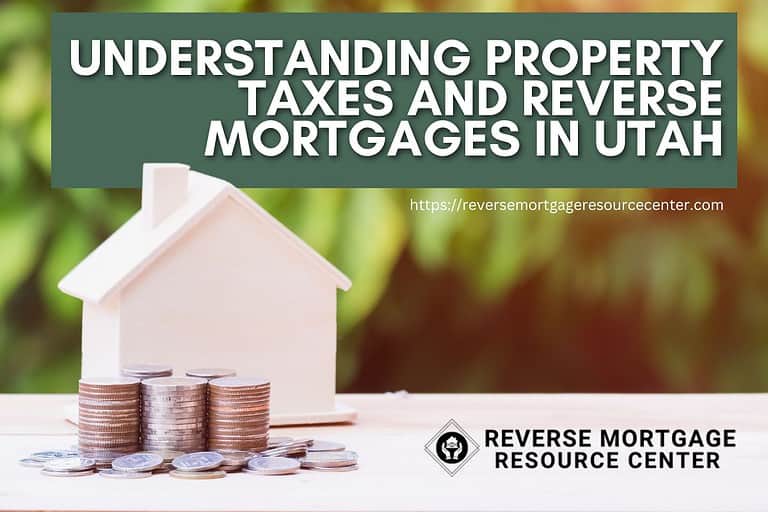Understanding Property Taxes and Reverse Mortgages in Colorado
Retirement should be a time of relaxation and enjoying the fruits of one’s labor. However, for many seniors in Colorado, financial challenges can cast a shadow over these golden years. Understanding the intricacies of property taxes and reverse mortgages is crucial for seniors seeking financial stability and a comfortable retirement. In this comprehensive guide, we will delve into the nuances of property taxes and explore how reverse mortgages can be a viable option for seniors facing financial uncertainties.
The Basics of Property Taxes in Colorado
How Property Taxes are Calculated
Property taxes in Colorado are based on the market value of your home. The county assessor determines this value through a periodic assessment process. The assessed value is then multiplied by the local mill levy, a tax rate set by various taxing authorities, including school districts, municipalities, and counties. Understanding how these elements come together is essential for seniors to comprehend their property tax obligations.
The Colorado property tax system operates under a specific framework, where the assessment rate for residential properties is 7.15%. This means that 7.15% of the actual value of your home is subject to property taxation. For example, if your home is assessed at $300,000, the taxable value would be $21,450 (300,000 * 0.0715).
Senior Property Tax Exemptions
Colorado offers property tax exemptions specifically designed to provide relief to seniors. The Senior Property Tax Exemption allows qualifying seniors aged 65 and older to exempt 50% of the first $200,000 of the actual value of their primary residence from property taxation. This exemption can significantly alleviate the financial burden for eligible seniors.
To qualify for the Senior Property Tax Exemption, seniors must have owned and occupied their primary residence for at least ten consecutive years before January 1 of the year they apply. This exemption reduces the overall property tax burden and ensures that seniors can maintain ownership of their homes without facing undue financial strain.
Moreover, the Homestead Exemption is another valuable benefit for seniors in Colorado. It exempts 50% of the first $200,000 of the actual value of a qualifying senior’s primary residence. This exemption is available to seniors aged 65 or older or surviving spouses aged 58 or older.
Reverse Mortgages: An Overview
What is a Reverse Mortgage?
A reverse mortgage is a financial product designed to allow seniors aged 62 and older to convert a portion of their home equity into tax-free funds. Unlike a traditional mortgage, a reverse mortgage doesn’t require monthly mortgage payments. Instead, the loan is repaid when the homeowner sells the home, moves out of the residence, or passes away.
Reverse mortgages are particularly attractive for seniors because they provide a means to access the equity built up in their homes without the obligation of making monthly mortgage payments. This can be especially beneficial for those facing financial challenges or seeking funds to supplement their income during retirement.
Types of Reverse Mortgages
There are three main types of reverse mortgages available to seniors:
- Home Equity Conversion Mortgage (HECM): Insured by the Federal Housing Administration (FHA), HECM is the most popular type of reverse mortgage. It provides seniors with a versatile means of accessing their home equity.
- Single-Purpose Reverse Mortgage: Offered by state or local government agencies and nonprofit organizations, these mortgages are designed for specific purposes, such as home repairs or property taxes.
- Proprietary Reverse Mortgage: This type is privately insured and not subject to FHA regulations. It may be suitable for seniors with higher home values.
The Benefits of Reverse Mortgages for Seniors
Supplementing Retirement Income
One of the primary advantages of a reverse mortgage is the ability to supplement retirement income. For seniors facing financial challenges, this can be a lifeline. The tax-free funds obtained through a reverse mortgage can be used to cover daily living expenses, medical costs, or even property taxes.
The additional funds from a reverse mortgage can provide seniors with a sense of financial security and peace of mind, allowing them to enjoy their retirement without constantly worrying about making ends meet.
Retaining Homeownership
Contrary to common misconceptions, a reverse mortgage allows seniors to retain ownership of their homes. As long as they continue to meet the loan obligations, they can live in the home without the fear of eviction.
This aspect is crucial for seniors who wish to age in place and maintain the familiarity and comfort of their own homes. The ability to access home equity without giving up homeownership is a significant advantage for those seeking financial flexibility in their retirement years.
Flexibility in Fund Utilization
Seniors have the flexibility to use the funds from a reverse mortgage as they see fit. Whether it’s paying off existing mortgages, funding home improvements, or covering medical expenses, the choice is entirely theirs.
This flexibility allows seniors to address their most pressing financial needs and improve their overall quality of life during retirement. Whether it’s taking that dream vacation, making home modifications for aging in place, or supporting grandchildren’s education, a reverse mortgage provides the means to turn these aspirations into reality.
Considerations Before Opting for a Reverse Mortgage
Impact on Heirs
While a reverse mortgage can provide immediate financial relief, it’s crucial to consider its impact on heirs. When the homeowner passes away or moves out of the home permanently, the loan becomes due. Heirs may need to repay the loan to retain ownership of the property.
Seniors considering a reverse mortgage should engage in open and honest communication with their heirs about the implications of this financial decision. Understanding the potential obligations and responsibilities will help family members plan for the future and make informed choices regarding the family home.
Costs and Fees
Seniors should know the costs of obtaining a reverse mortgage, including origination fees, closing costs, and interest rates. Understanding these factors will help in making informed decisions about whether a reverse mortgage aligns with their financial goals.
It’s advisable for seniors to compare offers from different lenders, carefully reviewing the terms and associated costs. Consulting with financial advisors or mortgage counselors can provide valuable insights and ensure that seniors enter into a reverse mortgage agreement with a clear understanding of the financial implications.
Integrating Property Taxes and Reverse Mortgages
Addressing Property Tax Obligations
For seniors considering a reverse mortgage to address financial challenges, it’s essential to factor in property taxes. The funds obtained through a reverse mortgage can be strategically allocated to cover property tax obligations, ensuring ongoing homeownership without the risk of falling behind on tax payments.
Seniors should work with financial advisors to develop a comprehensive plan incorporating property taxes into their financial strategy. By leveraging the benefits of the Senior Property Tax Exemption and using reverse mortgage funds wisely, seniors can achieve a more sustainable and secure financial future.
Consultation with Financial Professionals
Before making any decisions, seniors should seek advice from financial professionals specializing in reverse mortgages and property taxes. These experts can provide personalized guidance based on individual circumstances, helping seniors make informed choices that align with their financial goals.
Financial professionals can thoroughly assess a senior’s financial situation, considering income, expenses, and long-term goals. This holistic approach ensures that any financial decisions, including the consideration of a reverse mortgage, are aligned with the broader retirement plan.
REVERSE MORTGAGE RESOURCE CENTER ~LIVE LIFE ON YOUR TERMS~
Our Lending Team has been serving our clients since 2004. We are passionate about serving our clients with integrity to help them achieve their financial goals.







